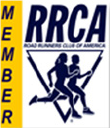- DON’T WEAR HEADPHONES. Use your ears to be aware of your surroundings. Your ears may help you avoid dangers your eyes may miss during evening or early morning runs.
- Run against traffic so you can observe approaching automobiles. By facing on-coming traffic, you may be able to react quicker than if it is behind you.
- Look both ways before crossing. Be sure the driver of a car acknowledges your right-of-way before crossing in front of a vehicle. Obey traffic signals.
- Carry identification or write your name, phone number, and blood type on the inside sole of your running shoe. Include any medical information.
- Always stay alert and aware of what’s going on around you. The more aware you are, the less vulnerable you are.
- Carry a cell phone or change for a phone call. Know the locations of public phones along your regular route.
- Trust your intuition about a person or an area. React on your intuition and avoid a person or situation if you’re unsure. If something tells you a situation is not “right”, it isn’t.
- Alter or vary your running route pattern; run in familiar areas if possible. In unfamiliar areas, such as while traveling, contact a local RRCA club or running store. Know where open businesses or stores are located in case of emergency.
- Run with a partner. Run with a dog.
- Write down or leave word of the direction of your run. Tell friends and family of your favorite running routes.
- Avoid unpopulated areas, deserted streets, and overgrown trails. Avoid unlit areas, especially at night. Run clear of parked cars or bushes.
- Ignore verbal harassment and do not verbally harass others. Use discretion in acknowledging strangers. Look directly at others and be observant, but keep your distance and keep moving.
- Wear reflective material if you must run before dawn or after dark. Avoid running on the street when it is dark.
- Practice memorizing license tags or identifying characteristics of strangers.
- Carry a noisemaker. Get training in self-defense.
- When using multi-use trails, follow the rules of the road. If you alter your direction, look over your should before crossing the trail to avoid a potential collision with an oncoming cyclist or passing runner.
- CALL POLICE IMMEDIATELY if something happens to you or someone else, or you notice anyone out of the ordinary. It is important to report incidents immediately


